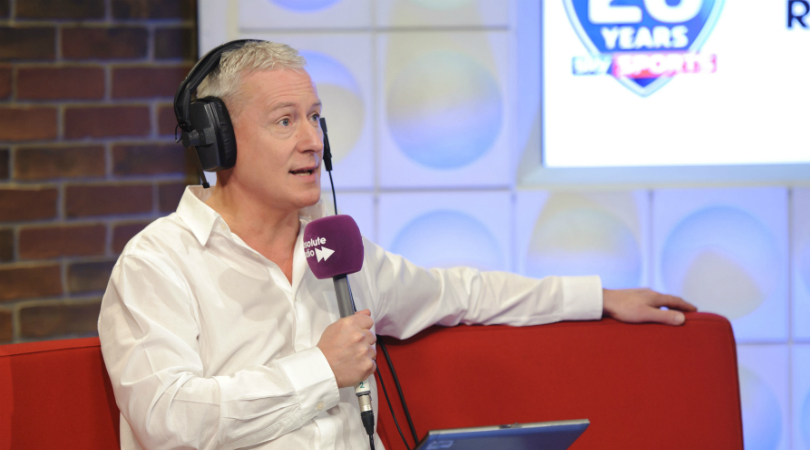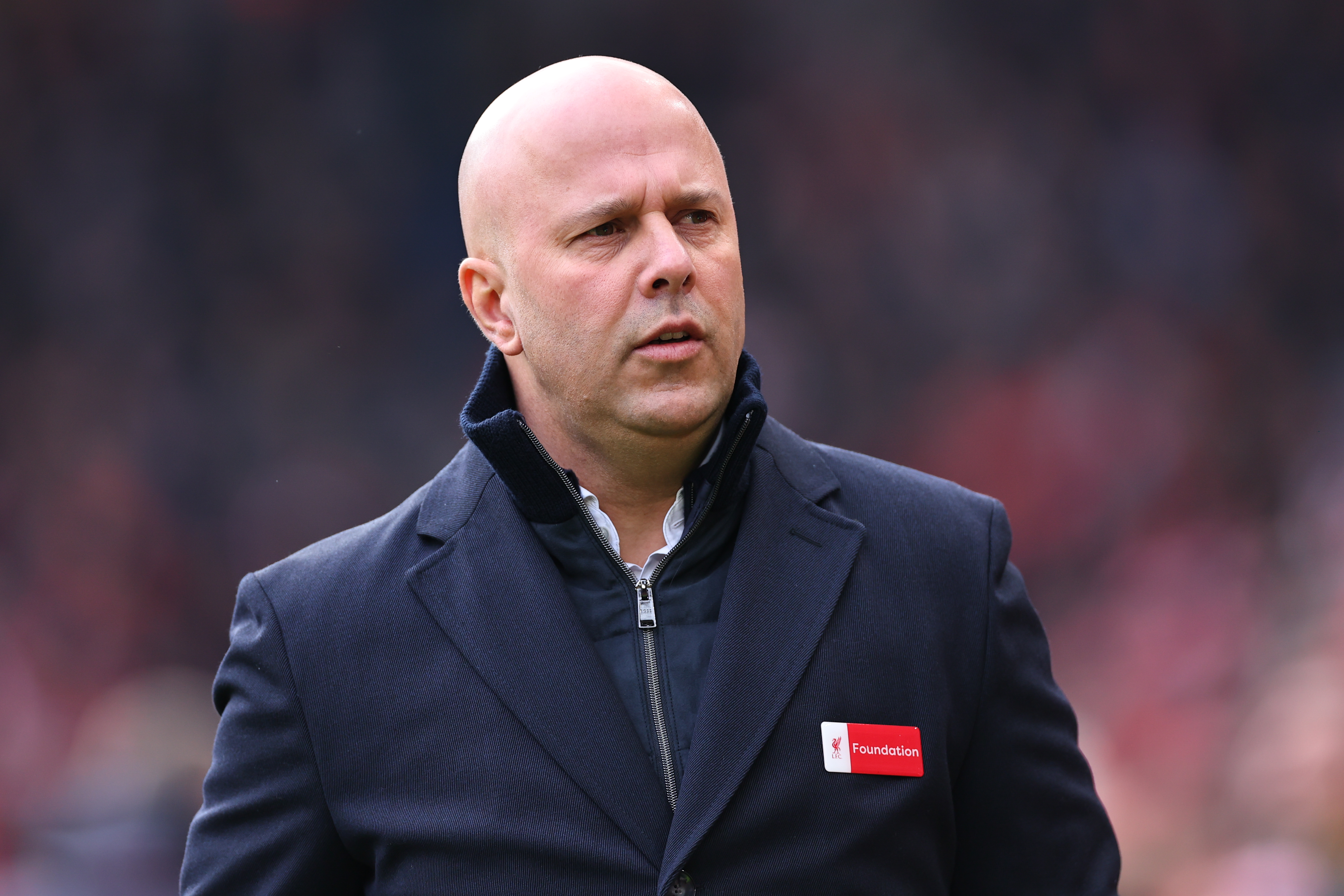Why Allardyce can make England fearless, forward-thinking – and successful
The Dudleyite has been telling people for years that he should be England manager. FFT's Chris Flanagan ponders whether his combative nature and in-depth strategising might be just what the national team needs
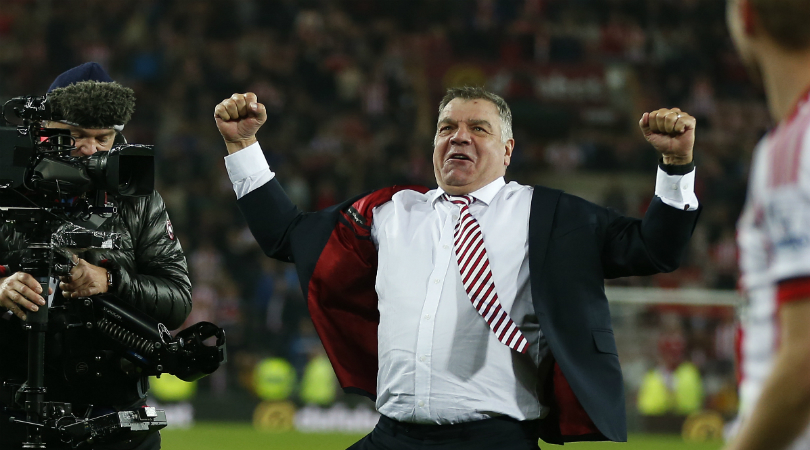
“It wasn’t just a football job, it was a question of international diplomacy,” Dick Wragg once said, explaining why the FA’s selection committee had decided not to appoint Brian Clough as England’s new manager. “Clough never was, nor could be, a diplomat.”
That much was true. Even on the day of his interview for the job, Clough had scored a potential diplomatic own goal by telling FA secretary Ted Croker in typically confident fashion that England’s new shirt was ‘hideous’. Wanting the quiet life, the FA appointed Ron Greenwood instead.
Sam Allardyce may not be quite so abrasive or indeed as exceptionally successful as Clough, but there was a sense when he missed out on the England job 10 years ago that Steve McClaren was more of ‘an FA man’, a man more willing to put his ego to one side, to toe the party line.
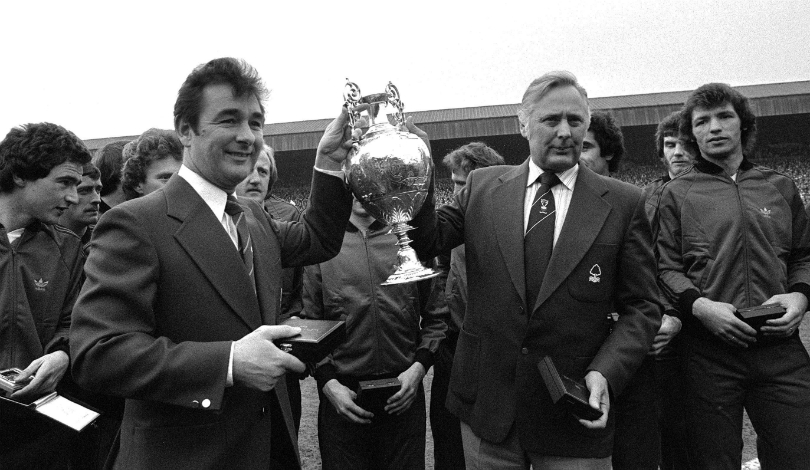
Roy Hodgson was perhaps the greatest diplomat of them all, a man who probably would have been quite at home solving the Suez Crisis, but he fared less well when trying to manage an international football team against Iceland.
Jose Mourinho accused Allardyce of playing ‘19th century football’ after West Ham ground their way to a 0-0 draw at Stamford Bridge. “I don’t give a s***,” Allardyce responded, bursting into laughter
“You have to be a diplomat, they never go for controversial characters whose faces don’t fit,” Lawrie McMenemy said recently, voicing his fears that Allardyce would be overlooked once more. “I’m not sure that suits Allardyce’s style.”
And yet here we are. Sam Allardyce, England manager. It’s not exactly Boris Johnson, Foreign Secretary – for a start, Allardyce has never written any poems about Turkey boss Fatih Terim having sex with a goat – but it’s an intriguing shift from the norm. It’s been some time since England had a manager who is so unafraid to say what he thinks – whether people like it or not.
There was the time, for instance, when Jose Mourinho accused Allardyce of playing "19th century football" after West Ham ground their way to a 0-0 draw at Stamford Bridge. "I don’t give a s***,” Allardyce responded, bursting into laughter. “He can’t take it because we’ve outwitted him. It’s brilliant when you get a result against him. Hard luck, Jose."
Get FourFourTwo Newsletter
The best features, fun and footballing quizzes, straight to your inbox every week.
It’s a response you could certainly never have imagined coming from Hodgson, or Fabio Capello, or Steve McClaren, or Sven-Goran Eriksson.
Self-confidence spreads to his players
Like Mourinho, Allardyce has always been willing to have very public sparring sessions with his opponents – never afraid to take on the likes of Rafa Benitez and Arsene Wenger if he felt it beneficial. Watch out Jogi Low and Didier Deschamps, Big Sam is here – and he’s bigger than you.
I'm not suited to Bolton or Blackburn, I would be more suited to Inter or Real Madrid," he once said. "It wouldn't be a problem to me to go and manage those clubs because I would win the double or the league every time
He’s never exactly been shy of a spot of self-promotion either. "I'm not suited to Bolton or Blackburn, I would be more suited to Inter or Real Madrid," he once said. "It wouldn't be a problem to me to go and manage those clubs because I would win the double or the league every time."
Allardyce’s own air of supreme confidence, and his clear opinion that he is better than other managers, is something that has helped to spark belief in the players of his various clubs. If their manager is so uncowed by even the most lofty of opponents, why should they be fearful either? That removal of fear has played a significant part as his sides have often punched above their weight. Allardyce could be the man to take away the nervousness that has so often hit England when it really matters.
"Players need to be told not to worry about mistakes," Allardyce once explained, during a year-long stint as a columnist for FourFourTwo. "They need to be told that they are all to cover for each other because they’re in it together. They must stick together as a team."
Allardyce will sort out the basics
Something Allardyce knows very well is that confidence won’t last very long if you don’t get the basics right first.
Take his thoughts on conceding needless goals from set pieces, hampering chances of victory even after the most dominant of performances. “Even if you get round and through sides, if you lose, everybody will get depressed,” he told FFT, almost as if he knew that some day in the future - possibly on June 27, 2016 - England would be humiliated by Iceland in a game that turned on a long throw.
"To defend against long throws, get one of your biggest men positioned in front of their danger man," he explained. "If you stand behind him, when the throw comes in it’s hard to get hold of him for fear of giving a penalty away. If you get someone in front of him, the striker has to lean over the defender or get round him, and he’ll probably end up fouling him." If only you’d been here a few weeks ago, Sam…
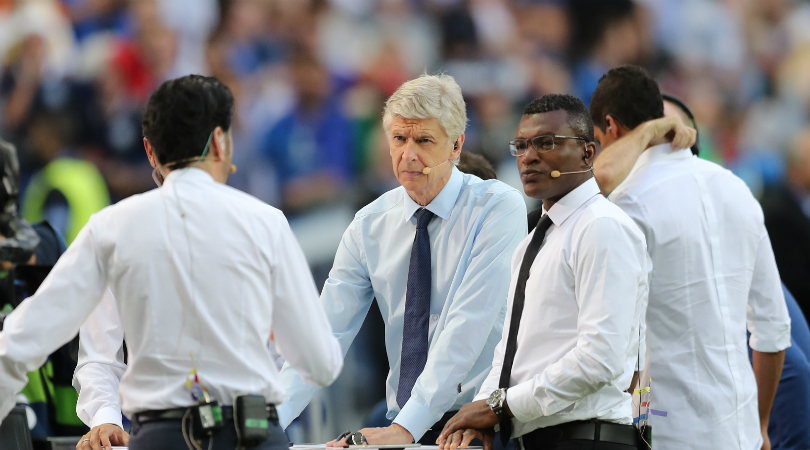
Two big conundrums that Euro 2016 has offered Arsene Wenger
5 things we've picked up from Antonio Conte's first two Chelsea matches
The irony is that Hodgson was once renowned as a meticulous tactician himself, a man who valued organisation over flair, and whose sometimes defensive gameplan was perfect for Fulham – a perennial mid-table side who he took to the Europa League final - but ill-fitting for aspiring title-chasers Liverpool.
With the national team, all that appeared to go out of the window. After criticism at previous tournaments, England couldn’t be seen to set up defensively so Hodgson chucked every flair player he had at the situation, seemingly at the expense of tactical organisation. Players that operated effectively in qualifying suddenly played frantically, at 100 miles an hour.
A lack of calm heads in front of goal cost England at one end; at the other end, virtually every time the opposition attacked, they scored. England’s current defence may not be vintage, but it’s no worse on paper than the rearguards of Poland, or Wales, or Iceland, sides who fared better because they simply appeared more organised.
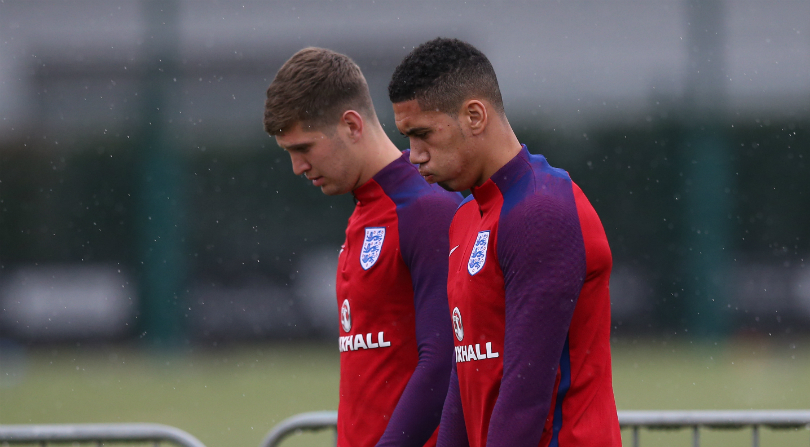
For years, England have been trying to run before they can walk. Expectation is not only to play attractively but also to win tournaments – something that hasn’t happened for 50 years, a period in which nine other European countries have now lifted a trophy, following Portugal’s triumph at Euro 2016.
England are now one of the outsiders at tournaments, and Allardyce knows how to help outsiders upset the big boys. His first priority will always be organisation.
"In the final third, you can express your skills and your individuality, but before that, you have to keep it simple," he explained to FFT. "The first object is to focus your team on playing the whole game without conceding a goal, so the least you will get is a draw. That will increase the team's confidence. If you keep clean sheets, something will go your way. Now you've become a side that doesn't concede a goal, and you've started to win again. That builds confidence for the next game to go out again with the same mentality, and you'll start to win more easily."
New boss will let star players flourish
There’s a perception that Allardyce's desire for clean sheets will see attacking talents shackled, with Andy Carroll immediately installed up front. True, Carroll’s ears might just have pricked up when he heard of Allardyce’s appointment, and don’t be surprised if he gets a call-up to the squad at some stage this season – providing he’s fit, of course.
But Allardyce’s approach is about more than just that. Technical players have flourished equally under his management. Jay-Jay Okocha had arguably the best spell of his career at Bolton. For a brief period, he was one of the best players in the whole Premier League, allowed to work his magic at will in attacking areas. Many a Bolton game would end with Allardyce’s side ahead, and Okocha unleashing a series of dazzling showboat skills to retain possession and wind the clock down.

Once, he fired a 70-yard crossfield ball straight to the feet of a team-mate, that renowned long-ball clogger Youri Djorkaeff, who looked up and sent an inch-perfect pass 70 yards back to Okocha on the opposite touchline, while their opponents could only look on. Technically, both could have been considered long balls, if you wanted to get statistical about these things. But it was stunning football, from two players given licence to express themselves on the field.
Few players have been trickier to handle than El-Hadji Diouf – plenty of managers tried and failed – but Allardyce handled him so well that he signed Diouf again when he moved to Blackburn
Allardyce has always known how to motivate and man-manage such players. Few players have been trickier to handle than El-Hadji Diouf – plenty of managers tried and failed – but Allardyce handled him so well that he signed Diouf again when he moved to Blackburn. That he was able to sign such players in the first place – Nicolas Anelka agreed to join Bolton at 27, effectively the peak of his career - said much about his powers of persuasion.
Few players who have worked under Allardyce have a bad word to say about him – he hasn't lost a dressing room like Jose Mourinho was said to have done at Chelsea, and he hasn’t had to cull star players like Alex Ferguson sometimes did at Manchester United to exert control. Just as well, because neither of those scenarios would play out particularly well on the international stage, with no transfer market to fall back upon. Fail to get all of the best players in the country onside, and you've got a problem.
No stone unturned
Allardyce has always created an enjoyable environment for players to work in, with plenty of team-bonding days to build spirit and allow the squad to feel relaxed in each other's company. With England, that relaxed atmosphere could help to take away the tension players clearly feel while out on the field representing their country.
But there's no danger of the real focus being lost. Allardyce sets his sides targets – in the Premier League, he'd split the season into 10-game periods, and give them a points target for each period. More often than not, they were met. The importance of certain matches was hammered home to the players, too. "It's s*** or bust," he told the written press ahead of one particularly vital fixture. "You might have to reword that."
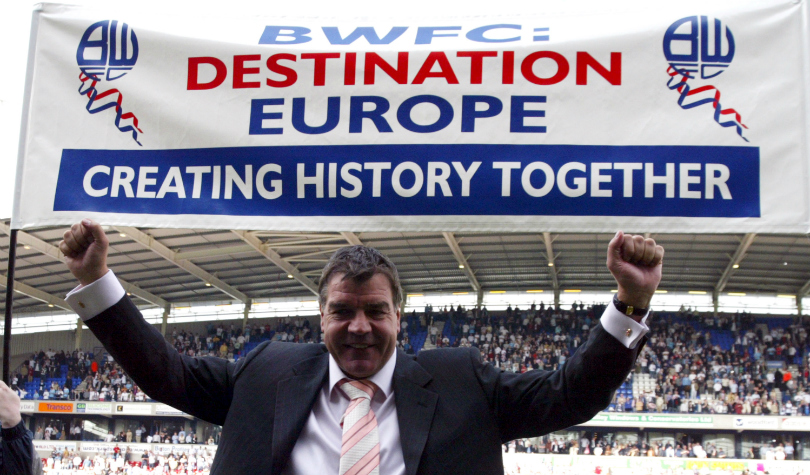
There are longer-term targets too: not long after taking over at second-tier, cash-strapped Bolton, he vowed to take the club into Europe. "The manager laid out a plan of qualifying for Europe in five years, and I remember everyone chuckling," Kevin Nolan recalled of that squad meeting. "We did it in four years."
Bolton would often have away days where staff locked themselves inside a room for hours and brainstormed new ways to steal a march on their Premier League rivals
That they did so was much down to a belief in marginal gains. Allardyce was ahead of his time at Bolton, an innovator who recruited an army of backroom staff – fitness gurus, sports scientists, analysts, player liaison officers, even tai chi experts – to look after every tiny detail of preparation. Players were sometimes given heart monitors to show they were maintaining fitness away from training: Ian Marshall tried to get around it by putting it on his dog, only to be sussed when the readings that came back were somewhat unusual.
The training ground was transformed from a social club shared with local bowls enthusiasts into a hi-tech facility that even had its own cryotherapy fridge, where players encountered temperatures of minus 150 degrees over short bursts, to aid recovery. Grand plans would be devised in what was known as 'The War Room'. "That was where we planned our strategy," Allardyce said in his autobiography. "It was the Oxford University of football."
Central to those plans was performance director Mike Forde, respected so much within football that he later joined Chelsea. Forde would often instigate away days where staff locked themselves inside a room for hours and brainstormed new ways to steal a march on their Premier League rivals.
It seems likely that Allardyce will be doing that sort of thing again now he's in charge of England. Most of the innovations introduced at Bolton are now widespread, but there are always new methods to gain an edge over the opposition. Without the worries of day-to-day training, Allardyce will be relatively free to consult with whomever he pleases in the English game, conjuring up new ways to maximise the country's chances.

Just a few years in charge of England Sam, then you can retire
One target that Allardyce has missed is his retirement date – a decade ago he said he'd quit management when he turned 55, but at 61 he's taking on the biggest job of his life. England's new boss may already be better known abroad than people think: Pep Guardiola announced recently that he was looking forward to facing "The Big Sam" in his first game in charge of Manchester City, against Sunderland on August 13.
As it turns out, Allardyce has bigger things to be getting on with instead. It's the job that could ultimately define his life in football. "It's s*** or bust," is how Allardyce would probably describe it. "You might have to reword that."

Chris joined FourFourTwo in 2015 and has reported from 20 countries, in places as varied as Jerusalem and the Arctic Circle. He's interviewed Pele, Zlatan and Santa Claus (it's a long story), as well as covering the World Cup, Euro 2020 and the Clasico. He previously spent 10 years as a newspaper journalist, and completed the 92 in 2017.
